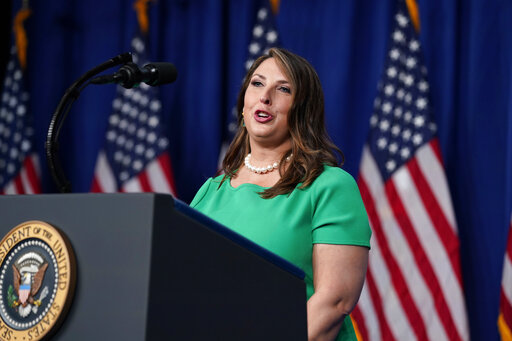
Evan Vucci/AP Photo
Subbu Vincent is the director of Journalism & Media Ethics at the Markkula Center for Applied Ethics, and a monthly contributor at Forbes. He tweets from @subbuvincent and @jmethics. Views are his own. This article, What to Take Away From NBC’s Hire and Fire of Ronna McDaniel , originally appeared on Forbes.com and is reprinted with permission.
NBC News parted ways with former Republican National Committee chair Ronna McDaniel four days after hiring her. The trigger: Multiple star anchors, led by Chuck Todd and Rachel Maddow, viewed McDaniel’s involvement in efforts to overturn the 2020 presidential election result as disqualifying. It was an on-air revolt.
Oliver Darcy, reporting for CNN’s Reliable Sources newsletter, said that "weak leadership was put on full display."
The word “disqualifying” for McDaniel does matter here, because it implies a standard around democracy. What’s missing from the brouhaha is that this is a real opportunity for major television news houses to build a minimum democratic-norms-based standard for news staffing.
Strong leadership includes setting standards or principles and ensuring their consistent application.
A declaration of principle is already evident in NBC Universal Chairman Cesar Conde’s reversal. Announcing McDaniel’s dropping, Conde expressed NBC’s commitment to a principle: “We must have diverse viewpoints on our programs, and to that end, we will redouble our efforts to seek voices that represent different parts of the political spectrum.”
There are two framing elements in that line. First, Conde frames the basis for bringing in McDaniel under the principle of having diverse viewpoints on air. Second, he ends the sentence by defining the qualifying arena as “different parts of the political spectrum.” In effect, he says that the original purpose of hiring McDaniel was to bring in political diversity. But is this principle going to be applicable afresh for future situations?